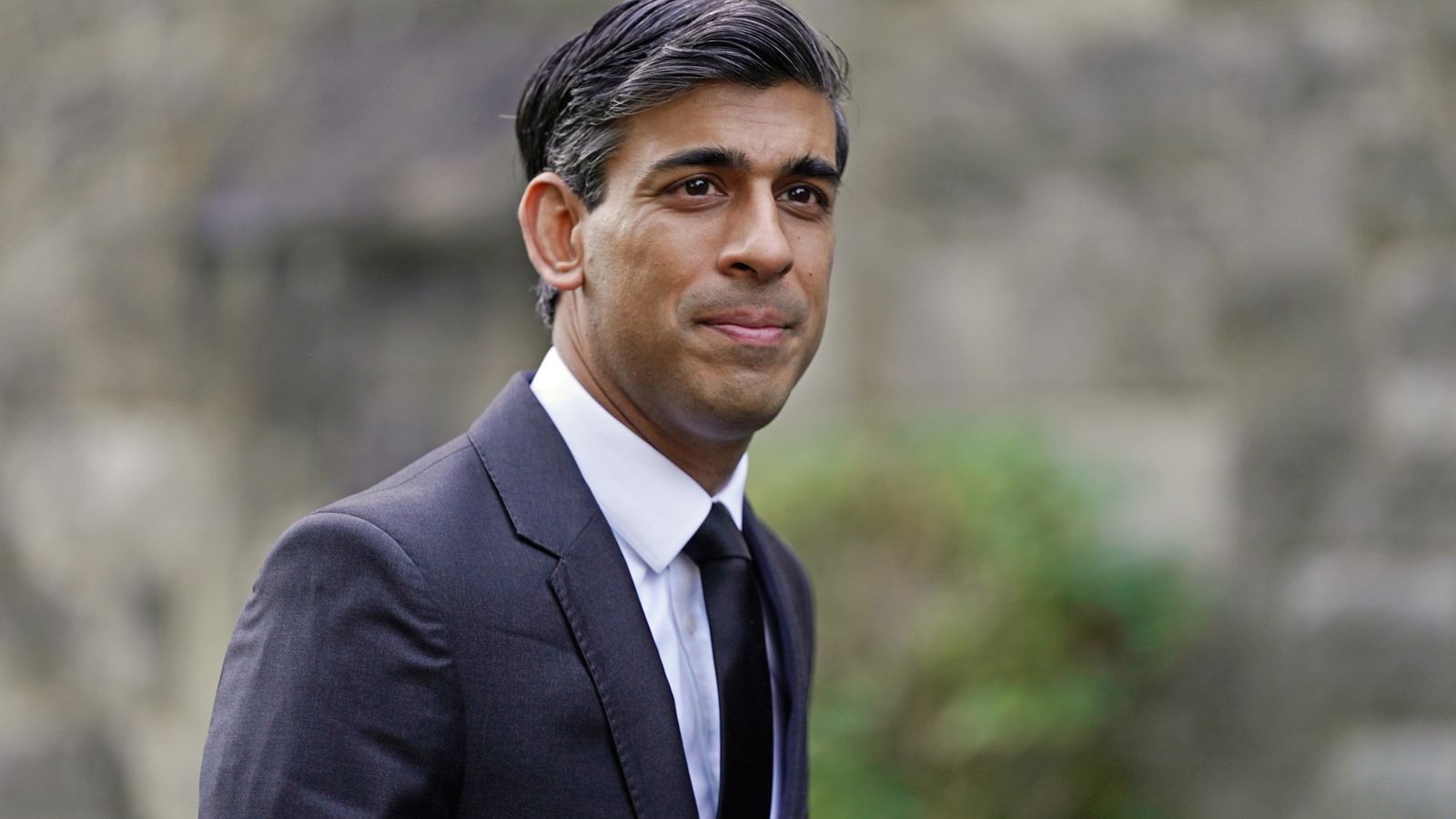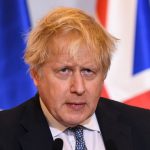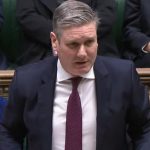Chancellor Rishi Sunak is expected to respond on Thursday to growing pressure for him to help millions of households struggling with the increasing cost of living.
It will come after energy regulator Ofgem is expected to announce an up to 50% rise in the energy price cap, due to soaring wholesale gas prices, meaning the average bill could hit £1,915 a year.
The price cap affects around 22 million households and will come into force on 1 April.
The chancellor is expected to announce plans for billions of pounds in state-backed loans, giving all households a £200 discount off their energy bills.
It would mean taxpayers underwriting loans to energy suppliers, with the suppliers passing the money on to households in the form of a rebate on bills.
Read more: What is the energy price cap and why will bills rise so sharply?
This is aimed at limiting the effect of price rises in April, but the money would be recouped from consumers in the following years so the loans could be paid back as energy prices fall.
Inflation crisis: Pressure intensifies on European Central Bank to change course
Inflation crisis: ‘Impossible’ to shield shoppers from rising costs, retail body warns
Cost of living: One in five cutting back on gas and electricity use amid inflation squeeze
Also on Thursday, the Bank of England is expected to raise interest rates from 0.25% to 0.5%, as forecasts show inflation is likely to remain high through the spring.
Inflation has already reached 5.4%, which is almost three times the Bank of England target.
Please use Chrome browser for a more accessible video player
The interest rates rise, which would mainly affect those on certain types of mortgages, would be the first back-to-back increase since June 2004.
Financial markets are pricing in four rises in 2022, which would mean rates hit 1.25% by the end of the year, with a further rise to almost 1.5% the following spring, the highest level since January 2009.
It comes as households await two more major cost increases in April – a rise in national insurance payments and a rise in council tax.
National insurance payments will increase by 1.25 percentage points to create a new health and social care levy.
It had been reported that Prime Minister Boris Johnson, under pressure from some backbench Tories and facing growing anger over “partygate” revelations, was reconsidering the hike.
But he and Mr Sunak confirmed at the end of January that it would go ahead.
Mr Sunak is, however, expected to announce measures to limit the impact of the council tax rise.
The Times reported that he would confirm on Thursday that more than 15 million households in council tax bands A, B and C could be given rebates funded by government grants.
The Treasury did not deny the plans regarding energy bills and council tax.
It’s being called D-day for the cost-of-living crisis. And Rishi Sunak is determined to be centre stage and show the public and Tory MPs that he has the right measures to tackle it.
On a day of good news and bad news, on which the bad threatens to outweigh the good, the chancellor will be hoping to bring some respite to hard-pressed families struggling to pay their soaring household bills.
The cost of living is also centre stage in the battle between the political parties, rivalling the Downing Street party allegations, and seems certain to dominate the next general election campaign.
Mr Sunak is under intense pressure from opposition MPs and his own backbenchers to introduce emergency measures urgently and deal with it.
And so, after Ofgem announces the lifting of the price cap on energy bills, probably by about £650 and taking it up to nearly £2,000, Mr Sunak will respond almost immediately in a House of Commons statement.
The headline in this statement is likely to be a £6bn loan scheme for energy companies, allowing them to give rebates of around £200 to households to compensate.
But will it be enough? And how will it go down in the Commons? Free-market Conservative MPs on the right of the party, such as Steve Baker and Sir John Redwood, are already complaining that it’s intervention in the market and profoundly un-Conservative.
Labour, on the other hand, will claim what the chancellor should be doing is axing VAT on energy bills, a move put forward in an Opposition Day debate in the Commons this week but rejected by the government.
But Mr Sunak will also pull a rabbit out of the cost-of-living hat by announcing a surprise move to give council tax rebates to those from poorer households, probably those living in Band A, B and C properties. A targeted move to help the less well off, he will claim, confident that Labour won’t be opposing that.
Up next, at midday, will be an interest rate rise, from 0.25% to 0.5%, from the Bank of England, which will be sold as a move to curb inflation, now heading towards 7%. Tell that to homeowners with mortgages, however.
Mr Sunak will round off his day blitzing household bills with a high-profile live TV address in a Downing Street news conference in the afternoon or early evening.
No doubt, however, he’ll be asked if he’s on manoeuvres against his embattled boss, Boris Johnson.
To which he’ll no doubt reply that the only manoeuvres he’s on are against the rising cost of living and soaring household bills.
Asked about the new support package, a Government spokeswoman said: “We recognise people are facing pressures with the cost of living, which is why we are providing support worth around £12 billion this financial year and next.
“We will provide an update in due course on further help for households across the UK to meet their energy costs in the face of rising global gas prices.”






















